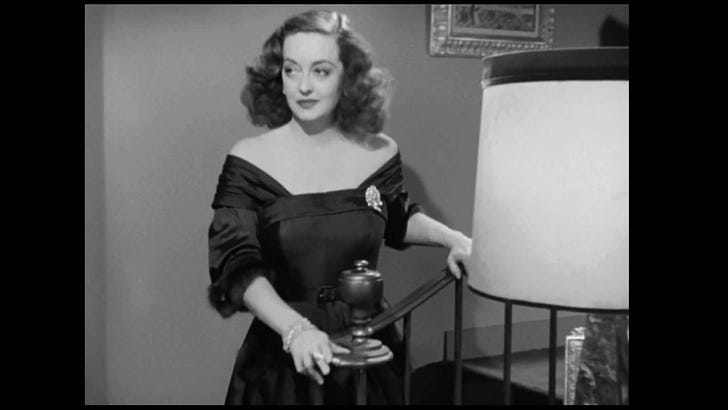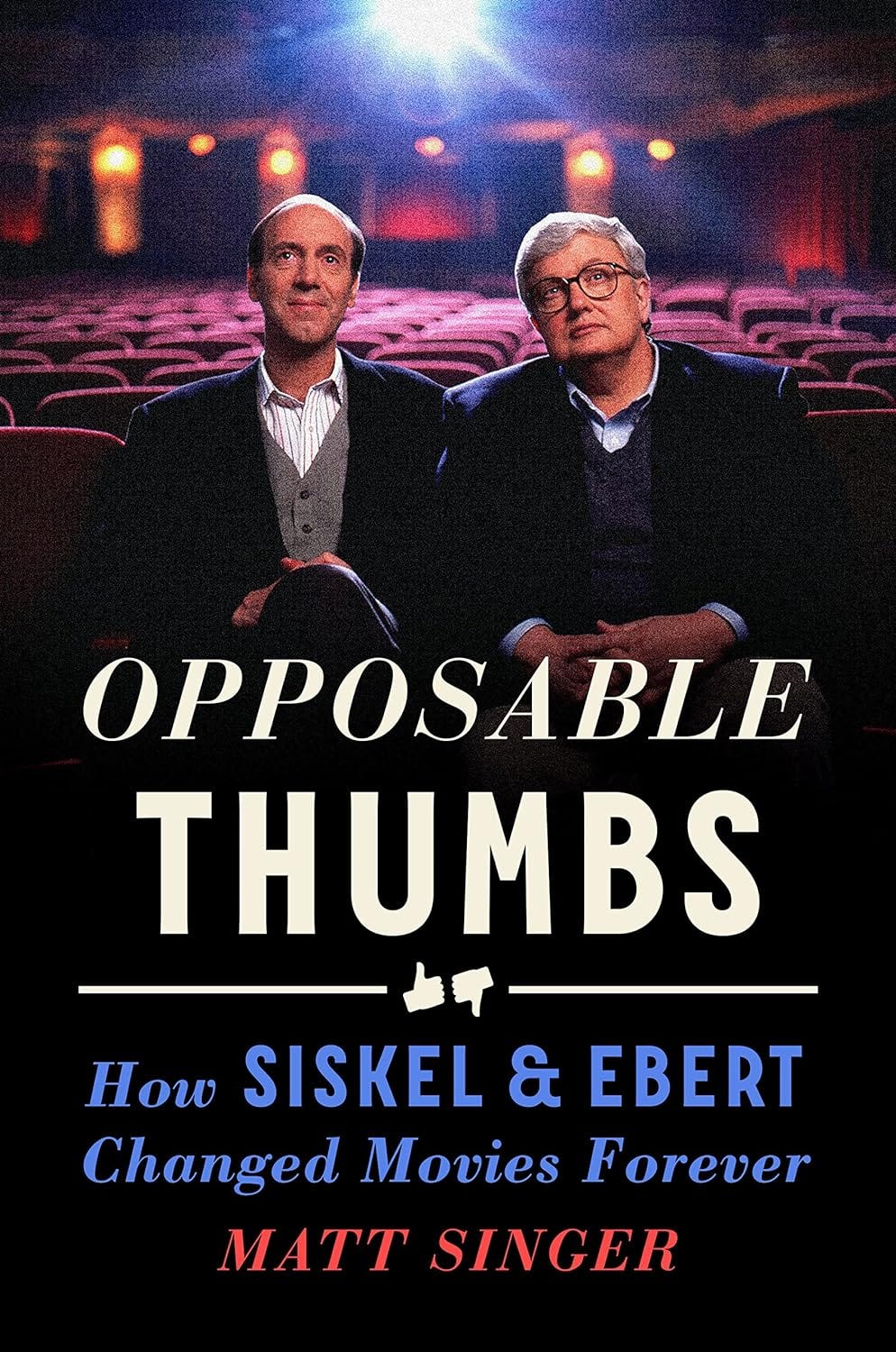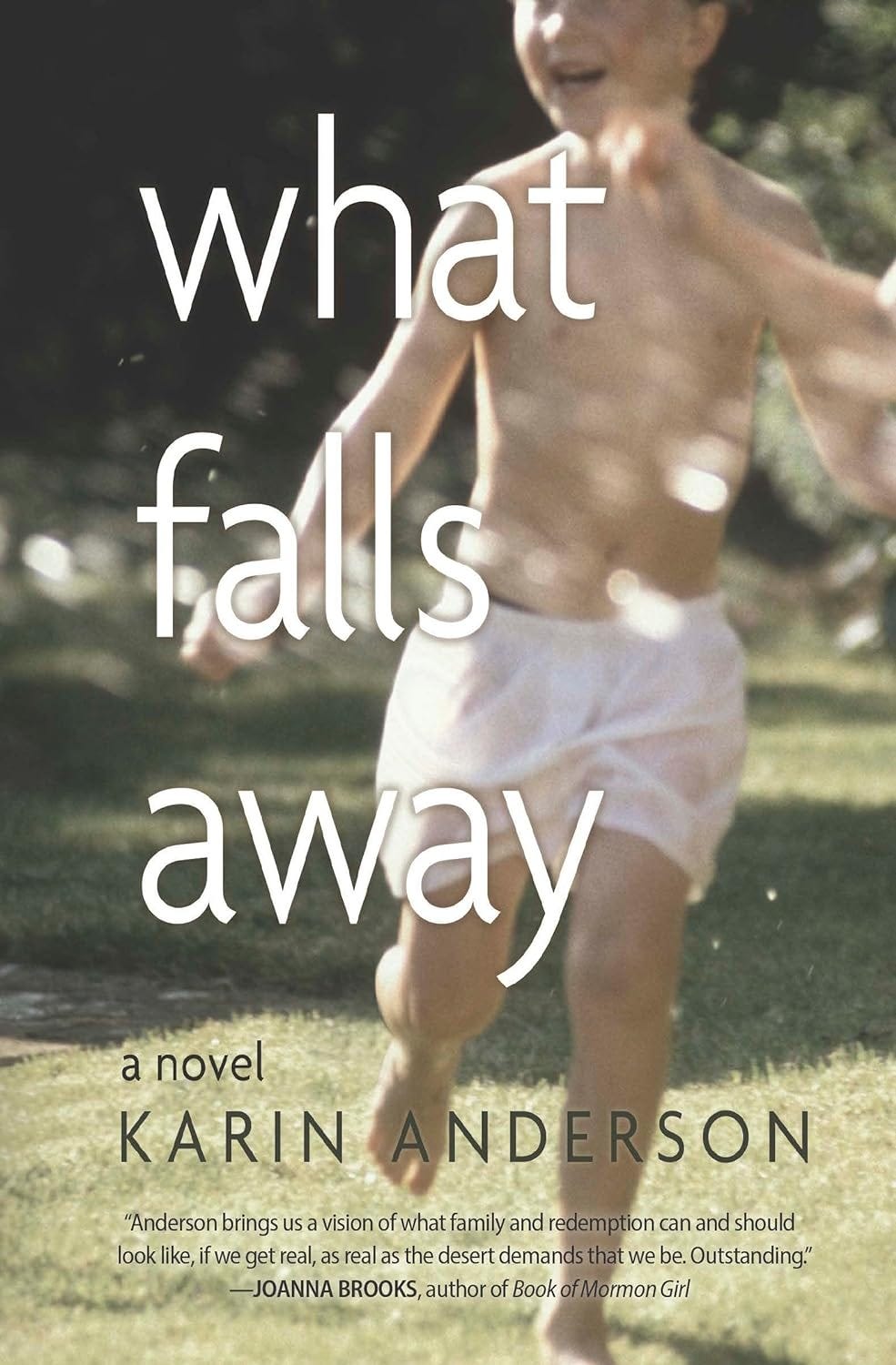2024 × 10 = Bette Davis being Bette Davis
. . . and the best thing about Bigfoot I've ever read.
.
Nobody cares about this but me, so skip this paragraph unless you'ld like to hear me note that I've simplified the formatting of the books posts to ease their transfer from Thutopia to Thubstack. We'll see if it makes life easier / makes for a prettier newsletter. If you notice such things, let me know.
Lotta comics to start off the year, including kiddie space opera, Sandman, and Peanuts so you know it's definitely me writing this. We also have a fascinating work of Mormon lit from last year, a look at Siskel and Ebert, a terrible science-fiction novel by a beloved mystery author, and the best thing about Bigfoot I've ever read.
001) Zita the Spacegirl by Ben Hatke, finished January 1
I found a copy in a Little Free Library and remembered liking it so I grabbed it for the youngun and then reread it myself. It charms but it is just a reshuffling of cliches. And having read this immediately before, well....
a beach sit
002) The Complete Peanuts: 1977 – 1978 by Charles M. Schulz , finished January 6
I'm building a Peanuts book for us with my sophomores. So far it’s all essays, but I need to start collecting strips as well. The secret to that is to continually enjoy reading the classics, baby.
a couple weeks or so
003) The Sandman: The Kindly Ones by Neil Gaiman et al, finished January 10
This is the longest of the Sandman books but that's not why it took me the longest to read. I should never have read the introduction. It told me things I did not want to know. Which is a shame because a) the is the second time in this reread that I've read a volume I've never read before, and b) I liked it a lot. It might have my favorite art so far, but the way they assigned credit for the artists makes it impossible for me to say who did what.
Anyway, this is the climax, I assume, of the whole run. Big things happen. Lotsa stuff comes together. I'd rather not say more.
over a month
004) Zita the Spacegirl by Ben Hatke, finished January 17
The 7yrold's been carrying this around and "reading" it more or less constantly. So when she asked me to read-it read it to her, I felt I had to. She loved it.
two or three days
005) Touched by Walter Mosley, finished January 19
I hated this novel. And I resent it especially because it's my first Walter Mosley novel and I've been wanting to read him for a long, long time.
It is my own fault, of course. I own a couple copies of Devil in the Blue Dress and my wife's cousin who's a huge fan just recommended Gone Fishin' but instead I picked a short science-fiction novel off the new shelf.
Always be cautious reading science fiction by someone who comes to it late in their career. Read what they're known for.
Touched starts of intriguingly enough but the novel is lost. It has no idea where it's going or what it's point is. The main character / pov character forgets his dream that is motivating the plot. Other characters "remember" but you get the sense the author has forgotten as thoroughly as his hero.
It's starts out as a dystopia but forgets that. Has some comic elements but can't figure out how to integrate them into the plot. By the end, I was just angry. Angry that a book like this got published. Angry that Mosley's editors did him dirt like this. Angry that he didn't pause when he realized he had no idea what he was doing. (I'm assuming a write of his caliber did realize.) Angry that I picked it up. Angry it was short enough I didn't feel like I could just stop reading.
It's a terrible book. If I had someone to sit down and debate with (see next book) I would happily get into more reasons why (let's talk about familiars! let's talk about vocabulary! let's talk about the use of sex and death!) but frankly it doesn't deserve it. If your daily paper needs a review, let me know. I'll be happy to pan it in more detail.
a couple weeks but only because I got sick
006) Opposable Thumbs: How Siskel & Ebert Changed Movies Forever by Matt Singer, finished January 20
I love Siskel and Ebert too. I wish I'd seen them more often as a kid. After Siskel died in 1999 (at age 53!) I spent at least ten years, whenever an interesting or particularly promising movie was about to drop, wondering what he would've thought of it. I still wonder that every now and then, even though Ebert too is now a decade dead.
I knew Ebert better because his column was carried in the Bakersfield Californian, but I was always wishing I could stay up and watch their show. Singer talks about doing that will a little tv he had in his room from a much younger age than when I started really watching it (late high school).
It's a tragedy to me that none of their show's incarnations are easily available. Some crappy prints appear on YouTube and elsewhere, but I think there's a Bob Ross-like market for old episodes. Just no will to bring them to the public, no doubt because, the suits imagine, who cares about those movies anymore?
Anyway, I loved this book, too. I rushed through it. I found it compelling and fun and fascinating. I learned a lot I didn't know and found their journey a delight to join.
There is an appendix of twenty-five movies that never really caught on but both of them liked. And here Singer quotes Siskel waaay more often than he does Ebert. Which I find fascinating. It suggests to me that ultimately he finds Siskel's opinions more persuasive. But it could also be that while he had a chance to work with Ebert, he never met Siskel. And so that hole may be what led him to make that (probably subconscious) editorial decision. I dunno. But it's interesting.
I was also persuaded by the broader impact Siskel and Ebert's shows had on the culture.
Anyway, it's a quick read and a fascinating look at the first quarter century of my life as lived by two of the most unlikely (but deserving) tv stars of the era. I wish you were here to debate this with me.
three days
007) Evergreen Ape: The Story of Bigfoot by David Norman Lewis, finished January 24
This book is short and intoxicating. Easily my new favorite in bigfoot media. It taught me a lot of history I didn't know and managed to get someone (me) so utterly sick of anything bigfoot to turn page after page after page.
It's clear he's skeptical of bigfoot's existence, but he also admits the bits of evidence that are difficult to (honestly) explain away.
Even more compelling is his sharing of the history of actual wild men like John Tornow (the Wikipedia article is worthless) who returned to the wild in a serious way. He also tells stories about Ishi that I'd never heard before and which helped me understand the ones I had.
In the end, his biggest thesis is that bigfoot tells us more about white America than anything else. In particular the Boomers.
If you have the least interest in the bigfoot phenomenon, this is the book. Plus, it ends with some wonderful sounding hikes where people like to see sasquatch. Although he does suggest once that an animal you can actually see in California's Humboldt County is the grizzly. I don't think so.
Other than that (and the fact that there is no bibliography) I found him a trustworthy host. Even if he does apparently dress like this.
one day
008) What Falls Away by Karin Anderson, finished February 1
I want to start by saying that I found the denouement of this novel absolutely beautiful, moving, wondrous. I want to say that because as I write about it I will make many complaints and I don't want those to take away from the novel's successes which are significant.
A couple years ago I read a funny and charming and happily Mormon and seemingly angst-free essay by Karin Anderson England and I wondered whatever happened to her, only to discover that she is the same person as Karin Anderson following a (I hear) rancorous divorce and a bitter falling out with the Church of her upbringing. I already knew Karin Anderson through a book she edited and I appeared in, and her manner of presenting herself was as the still-angry post-Mormon editor to balance out the faithful editor. (Her weirdly strident pride in heresy made a big impression on me.)
Wild that they are the same person.
But I wanted to read more of her writing and she had a new book. I successfully talked my local library into buying it and now I have read it. (It also started raining while I was reading outside and so I may end up paying for it anyway.)
Our main character, Cassandra, grew up in a high-mountain Utah valley. A beautiful place. Idyllic. But it really sucks the way small towns in faraway places can really suck.
After decades away, Cassandra is forced home by circumstances (her estranged mother's decline) and I had a hard time telling whether our hero is an intentional self-caricature of a strident heretic or a realistic portrayal of a person who, um, plays like a caricature of a bitter, angry, hateful, damaged, unforgiving strident heretic. Every Mormon character was absurd—but was that because they were absurd or because we only see them filtered through Cassandra's bitter soul?
Generally, as a reader, I am skilled at divorcing my thoughts about an author from the narrator or the text. But I had a hard time doing that with What Falls Away.
Eventually we get flashbacks of the series of events that led to Cassandra's expulsion / fleeing from Eden, and they are suitably horrifying. And believable. I lived in a town much like this town until I was ten and I've always believed that was a good time to leave. The place is still "home" as much as any place can be, but I am glad that my coming of age happened somewhere else.
Still, I have a hard time believing in youths who do the sort of things that the youths in this book do at their various camps and such. I know that I would've been the last person to know, but still. A Boy Scout circlejerk? Really?
Anyway, the horrors of her past let us understand Cassandra a bit more. The basics of what was had long been clear, but walking through the experience with her made her soul more accessible.
There are still plenty of wild and unlikely characters to come. For instance, the main villain, whom we barely see, makes the villain from Magdalene seem like a pretty chill and stable bloke. An additional problem is that Magdalene is proudly overthetop genre while What Falls Away positions itself a something more staid and "literary." I mean—this dude's crimes are outrageous. And his justifications are more outrageous still. He is the novel's apex of religiosity and masculinity (two things regularly conflated), and even with his rare appearances, this colors all other forms of religiosity and masculinity.
(One could make an argument that Cassandra's father is the actual apex, but I'm not writing a dissertation here.)
Which isn't to say there aren't other human options on display as options. But every intelligent woman's allegiance to the faith is self-admitted to be soft. And the kinder (less blowhardy) a man? Same.
One problem with the novel is it has a really, really hard time being sure how angry it is and about what exactly. This is like it's primary p-o-v, of course, as Cassandra's ability to cope with her family and with the Saints and with [etc] is limited by the damage she has undergone. She has regular moments where old trauma overwhelms the now. I do not mean to minimize what she's been through and it's an interesting artistic choice to have the narrative at large experience the same limitations. But it also makes it harder to see the larger themes of overcoming and forgiveness and redemption that I think (pretty sure) the book is ultimately about.
Perhaps we should consider it more honest that the moments of light are often short or interrupted or overtaken. The book ends with Cassandra's mother dying as Cassandra's own motherhood is restored. Shouldn't that basic structure make the point that the emotionally crippled main character and novel cannot?
But, as I said, the end—a funeral—crashes all these elements together. Some aspects of that final scene don't make sense (why did the children of that guy choose this funeral to appear at?) and Cassandra falls into another of her panic attacks, but it's also the first time she's with the whole family and the children will not let the adults fail to finish effecting her/their redemption. And it's lovely.
Cassandra's about twenty years older than me so I won't know pretend to know the truth of such things, but some of the horrors (the halfway house for instance), while within the realm of the believable are also just not believable. Again, is this because it's coming through Cassandra? Or is this Anderson's way of revealing a Dickensian horror I'm ignorant of?
But we run again into the earlier problem that the projected genre of the novel does not easily accept these over-the-top elements.
I liked the novel. Overall I can say I liked it a lot. But it had a hard time letting me believe in it for a hefty percentage of the pages.
But that very pushing-me-away is part of what makes the whole thing work. As much as I often found Cassandra unlikely, I just as often found her absolutely enthralling and attractive, as only the greatest fictional characters can be. Oh, how I wish to see her draw.
about a month maybe
009) Peanuts Jubilee: My Life and Art with Charlie Brown and Others by Charles M. Schulz, finished February 3
This book was published for the 25th anniversary of Peanuts and the last words in its final essay are "I hope very much that I will be allowed to do it for another twenty-five years."
He was. And we are glad.
Anyway, the book is three essays by Schulz, a bunch of Sunday strips (in color—and Frieda is blonde??), a timeline, and a bibliography of every book to that point that involved Peanuts, from collections of strips to books that only used, say, a panel for illustration. That last one is very cool. I've often wondered if even the museum knows every book out there. I still do, but it's nice to know they've been on top of it.
My favorite part is the essays. To read in Schulz's own words is great. The first essay was autobiographical; the second is a history and commentary/philosophy of the strip; the third is about production of the strip (mostly) and ancillary stuff.
He's a thoughtful and self-aware fellow (not surprising) and I'm glad I went through the hassle of finding this book. I'm surprised the essays haven't fallen across my path before.
maybe a couple weeks
010) Legends of Zita the Spacegirl by Ben Hatke, finished February 3
Having enjoyed one so much we went to the library for two. Next we'll head to the library for three.
Anyway, this one introduces new characters and conflicts but it also feels more settled in. So it's a nice volume two.
a few days
see all the books since 2007 at last year's final books post, only on Thutopia








